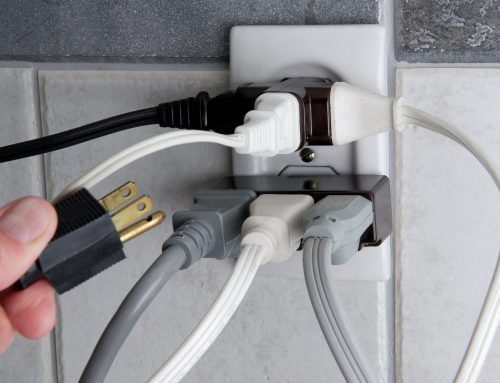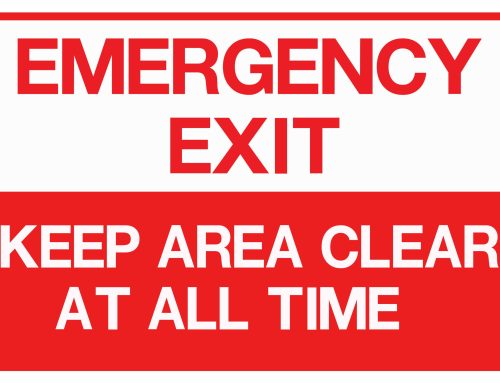Commercial kitchens are high-risk areas for fires due to the combination of heat, flammable materials, and high activity levels. As a business owner, maintaining a commercial kitchen that is safe protects not just your employees and customers but also your investment. Learn some helpful, and essential, tips for maintaining your commercial kitchen while protecting it against the dangers of smoke and fire.
#1 Understand Fire Hazards in Commercial Kitchens
The first step in maintaining fire safety is understanding the common fire hazards in commercial kitchens. These hazards typically include:
- Cooking equipment: Stovetops, deep fryers, ovens, and grills are the primary sources of heat and potential fire ignition. Grease buildup on or near these appliances can quickly ignite.
- Electrical equipment: Faulty wiring, overloaded circuits, and malfunctioning equipment can cause electrical fires.
- Flammable materials: Grease, oils, and cleaning chemicals are highly flammable if not stored properly.
- Ventilation systems: Clogged or dirty ventilation systems can accumulate grease, increasing the risk of fire spreading rapidly.
Understanding these risks is crucial to implementing effective fire prevention strategies.
#2 Invest in a Reliable Fire Suppression System
A high-quality fire suppression system is essential for any commercial kitchen. In Georgia, compliance with local fire codes and regulations is mandatory, and a properly installed fire suppression system is a legal requirement. An ANSUL system is a popular choice in the industry, designed to automatically detect and suppress kitchen fires.
Ensure that your fire suppression system is:
- Professionally installed: Work with a licensed and certified fire protection company to install the system.
- Regularly inspected: Regular inspections and maintenance are necessary to ensure the system functions correctly. Most systems require semi-annual inspections, but check your local regulations for specific requirements.
- Properly maintained: Replace worn-out components and keep the system clean and free of obstructions.
#3 Regularly Clean and Maintain Kitchen Equipment
Regular cleaning and maintenance of kitchen equipment are vital in preventing fires. Grease buildup is a common cause of kitchen fires, so it’s essential to:
- Clean grease traps and hoods: Regularly clean grease traps, hoods, and ducts to prevent grease accumulation. Schedule deep cleaning at least once every three months or more frequently, depending on kitchen usage.
- Inspect and clean exhaust systems: The exhaust system should be inspected and cleaned by professionals to ensure it is free of blockages and grease buildup.
- Service cooking appliances: Regularly service and maintain cooking appliances to ensure they are in good working condition. This includes checking gas lines, replacing faulty components, and ensuring proper ventilation.
#4 Train Your Staff on Fire Safety
Employee training is a critical component of fire prevention. All kitchen staff should be trained on fire safety protocols, including:
- Fire extinguisher use: Ensure that all employees know how to use a fire extinguisher correctly. Conduct regular fire drills to reinforce this training.
- Fire suppression system operation: Employees should understand how the fire suppression system works and what to do if it activates.
- Emergency procedures: Develop and practice an emergency evacuation plan. Ensure that all exits are clearly marked and accessible.
- Proper handling of flammable materials: Train staff on the correct storage and handling of flammable materials, including oils, cleaning chemicals, and other combustible items.
#5 Ensure Proper Storage and Organization
Clutter and improper storage in a commercial kitchen can lead to increased fire risks. To maintain a safe environment:
- Store flammable materials safely: Keep oils, chemicals, and other flammable materials away from heat sources and store them in fireproof containers when possible.
- Organize workspaces: Ensure that kitchen workspaces are well-organized and free from clutter. Clear paths to exits and keep flammable items away from cooking equipment.
- Maintain clear access to fire equipment: Fire extinguishers, suppression system controls, and emergency exits should be easily accessible at all times. Do not block these areas with equipment or supplies.
#6 Regularly Inspect Fire Protection Equipment
Besides maintaining your fire suppression system, other fire protection equipment requires regular inspections, including:
- Fire extinguishers: Inspect fire extinguishers monthly to ensure they are fully charged, easily accessible, and free from damage. Schedule annual professional inspections as required by local regulations.
- Smoke and heat detectors: Test smoke and heat detectors regularly to ensure they are functioning correctly. Replace batteries as needed, and schedule professional inspections if any issues arise.
- Emergency lighting and exit signs: Inspect emergency lighting and exit signs to ensure they are operational and visible. Replace bulbs and repair any damaged signs immediately.
#7 Stay Compliant with Local Fire Codes
Compliance with Georgia’s fire codes and regulations is not only a legal obligation but also a critical aspect of fire prevention. Stay up to date with local fire safety requirements by:
- Working with local fire authorities: Regularly consult with your local fire department to ensure your kitchen meets all safety standards. They can provide valuable insights and recommendations.
- Scheduling regular inspections: Schedule fire safety inspections with certified professionals to identify potential hazards and ensure compliance with fire codes.
- Keeping records: Maintain records of all fire safety inspections, equipment maintenance, and staff training sessions. This documentation can be crucial during regulatory inspections or in the event of a fire.
#8 Implement a Fire Safety Plan
A comprehensive fire safety plan is essential for any commercial kitchen. This plan should include:
- Emergency evacuation procedures: Clearly outline the steps employees should take during a fire, including how to evacuate safely and where to assemble outside.
- Fire prevention measures: Detail the fire prevention practices employees must follow, such as regular cleaning schedules, proper storage procedures, and equipment maintenance.
- Roles and responsibilities: Assign specific roles to employees in the event of a fire, such as who will call emergency services, operate fire extinguishers, or assist with evacuation.
Regularly review and update your fire safety plan to address any changes in your kitchen’s layout, equipment, or staff.
Choosing Fire Systems, Inc.
Maintaining a commercial kitchen from a fire protection standpoint requires a proactive approach. By understanding the risks, investing in quality fire suppression systems, regularly cleaning, and maintaining equipment, training your staff, and staying compliant with local fire codes, you can significantly reduce the risk of a fire and protect your business. Remember, fire safety is an ongoing process that requires attention, diligence, and a commitment to keeping your kitchen safe.
Fire Systems, Inc. has been installing, maintaining, inspecting, and repairing kitchen hood systems and more for over 30 years. We are truly experts in all things fire protection. As an established and well-respected Atlanta-based fire protection company, we can provide all aspects of your buildings’ fire protection systems. We make it easy; we make it safe. Contact us today at 770-333-7979 or visit our website for more information on all we offer.






